Biggest Challenges Faced by Female Indie-Fantasy Authors: GUEST POST
We’re very excited today to bring you a guest post from authors Suzannah Rowntree, Angela Boord, Virginia McClain, ML Wang, Rachel Emma Shaw and Krystle Matar.
A big thank you to Rachel Emma Shaw for arranging this guest post!
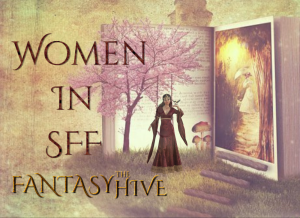
Being a female indie-fantasy author is both the most exhilarating and demoralising part of my life.
We experience all the usual highs and lows of writing – like stressing over plot holes and creating fantastical new worlds – but we also face many challenges exclusive to female fantasy authors, on top of the extra difficulties of being independently published.
To spotlight these challenges, I spoke to some of the biggest names in indie-fantasy publishing right now to get their insights and find out what they love about reading female-authored fantasy.
The best bits
When I posed this question, I asked what was great about being a female indie author. Everyone responded by saying how much indie publishing benefits them as a female author, and their reasons below are part of why indie fantasy is the thriving heart of the genre’s revolution.
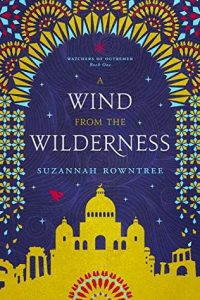 I’m not being shoehorned by publishers into certain genres.
I’m not being shoehorned by publishers into certain genres.
In traditional publishing, the early success of female YA authors (like JK Rowling and Suzanne Collins) resulted in YA being over-identified with female authors. Many traditionally published female fantasy authors have only been made offers on the condition their adult book is reworked for the YA market, so many are now going indie simply because there isn’t a place for them in the traditional world. – Suzannah Rowntree
I can set my own deadlines.
I’m a home-schooling mother with a lot of kids, one of whom is disabled. Life is consistently unpredictable for me. If a child or children get sick, if an appliance breaks, if my husband has to go out of town on business—these things fall on me. This means my schedule has to be ultra-flexible, and even though I’m not a slow writer, it generally takes me longer to write my (admittedly giant) books than it might take somebody else in a different life situation. In a traditional publishing environment, where I would have less control over my deadlines, I just wouldn’t be able to hit them. Being an indie author means I can make my crazy life work (somehow). – Angela Boord
We have an advantage in pioneering unexplored literary spaces.
As a female author, you automatically have different experiences than the majority of fantasy authors who came before you. When this is paired with indie publishing – where there are no gatekeepers to keep certain ideas out – it means you can easily publish stories that break new ground. – Rachel Emma Shaw
Being unabashedly myself.
I’ve been a fantasy nerd my whole life, and I’ve basically turned that into a full-time job. What could be better? – Virginia McClain
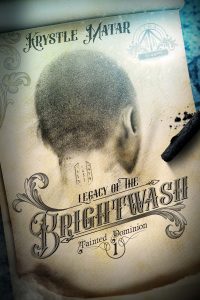 Not having to reduce myself to bullet points for marketing.
Not having to reduce myself to bullet points for marketing.
The amazing indie community seems to be a place where there’s room to be fully and truly human. We don’t have to pick and choose the aspects of our lives, our identities, or our books, in order to be marketable or on trend. We can just be human – as complex as we need to be. Our public selves and our books are entirely within our hands, and that’s incredibly liberating. – Krystle Matar
I get to control my own brand.
Any woman or marginalised person entering an industry is vulnerable to how the existing powers view them. Being indie can mitigate that to a degree. Although many trad authors also handle the bulk of their marketing, they still have to answer to a larger brand, but if I don’t want to interact with certain people or participate in certain events, that’s up to me. If I don’t want aspects of my identity tokenised or commodified, I can withhold those in online spaces. If I don’t want my books marketed with certain words or images, I can redo my marketing materials any time I want. – M. L. Wang
With traditionally published female authors being forced into boxes by their publishers, the stories they can tell are limited in ways indie books aren’t. The same is true irrespective of gender, but since more pressure is put on female authors to conform and stay in their boxes, the gap between works by traditionally and indie-published female authors is far wider than it is for men. This is a big factor in why more female indie-fantasy authors are emerging each year and gaining increasing recognition. They’re creating a wealth of new subgenres and tropes that are helping change the face of fantasy forever. While this is an exciting place to be, there are a lot of downsides too.
The challenges faced
Whatever your gender, indie publishing is hard. There are many hurdles to be leapt, but some of these are a lot bigger for female authors than they are for our male counterparts. In fact, some are so insurmountable that it’s taking female indie authors coming together just to scale them.
Readers refuse to pick up books by women.
I’ve heard/seen enough comments about folks giving female authors a miss that it’s pretty tempting to see if changing my pen name to V.A. McClain might mean my books sell better. Virginia is a very female-presenting name. This isn’t an indie-only problem. Even traditionally published female authors are less likely to be asked onto panels, to do interviews and be the face of their genre, but the problem is perhaps compounded by being indie. Part of me hates the idea of publishing under anything other than my own name. I’m proud of my books. I WANT folks to know it was me who wrote them. Why should I have to hide who I am to publish? I shouldn’t, but I’d probably sell more if I did. – Virginia McClain
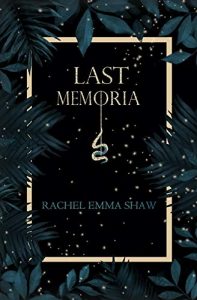 If you’re going to write your passion, then you likely won’t be recognised for it.
If you’re going to write your passion, then you likely won’t be recognised for it.
Much of what female-fantasy authors are passionate about isn’t valued by the critics. In the few circles that take indie fantasy seriously, there’s a strong bias against the genres traditionally associated with female-penned fantasy – such as urban, historical, YA and romantic fantasy. Even best-selling female authors of these genres express their frustrations over the lack of critical presence willing to take them seriously. – Suzannah Rowntree
There’s a lot of pressure on indie writers to churn out books and finish a series quickly.
Readers want more books, and many won’t start a series unless it’s finished. I write big books at my kitchen table surrounded by kids; I’m constantly battling to keep life/parenting/writing/business balanced so that all the plates I have in the air don’t come crashing down around me, and because I am the primary caregiver, logistical coordinator, and learning manager of my house, there is no possible way I can fit into this model of “success” because I don’t have time to make it happen. – Angela Boord
You have to choose between writing what you want to write and going with the market.
Writing a book while knowing there isn’t a pre-established market for it is soul crushing. As a female indie author writing with a female gaze, you’re probably writing outside the established market, meaning your book will likely get rejected by the masses. Finishing the book despite knowing that is a hard battle to fight. I do it because I write stories I need to tell, no matter who reads them, but I often see others get defeated, and those books never make it to publication. – Rachel Emma Shaw
Impostor Syndrome.
I’ve never pursued a traditional publishing deal, nor do I want to at this point in my career. But, if I’m in a self-doubting mood, that thought—that I don’t have this traditional stamp of legitimacy—will rear its slimy head, along with every other reason I’ve ever had to doubt my work. When someone says, “The Sword of Kaigen is good,” Impostor Syndromasaurus says, “They mean good for military fantasy by a woman,” and if not that, “They mean good for a self-published book,” and if not that, “They’re only saying that because [insert shady, performative reason here].” Of course, agonising over how people might perceive you—for your gender, race, or indie status—is not a good way to get things done. – M. L. Wang
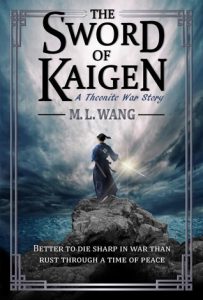 Genre prejudices prevent people from reading your books.
Genre prejudices prevent people from reading your books.
Reviews of romantic fantasies might never mention the romance at all. If they do, the reviewer says something like “I don’t normally like romance, but…” – as though it’s the presence of romance that’s the problem, when usually it’s the execution. The assumption is that romance is bad: I would argue we are simply unfamiliar with the techniques of writing good romance. – Suzannah Rowntree
Complex female characters (especially protagonists) are held to impossible standards.
Female protagonists who are messy, complicated, and human are not extended the same latitude, forgiveness and sympathy as their male counterparts. They’re expected always to be smart and tough. The desire for family, children, and love (especially romantic love with a man) is often perceived as a weakness, while tough female characters are seen as being cold and unrelatable for doing the same things a male protagonist would be applauded for doing. Complicated female characters are often called “unlikable”; meanwhile most fantasy mothers and other female characters only exist to die, providing motivation to sons, husbands, and lovers. It can be very frustrating to navigate this landscape and to challenge these tropes. – Angela Boord
Overcoming the internal programming that keeps trying to silence me.
I’m sure my colleagues know what it’s like to try to be in public spaces as a woman. Can’t be too loud, or you’re bossy. Can’t be too quiet, or you’re mousy. Can’t be too opinionated—then you’re a know-it-all. Can’t be too flirty, then you’re asking for it. Can’t be too distant—then you’re cold. Add all the expletives you can imagine. We know what they are. We’ve heard them all and then some. Those impossible standards sit in the back of my mind and gnaw at my confidence. Am I being too loud? Too flirty? Too overtly myself? Like Virginia, I also thought about publishing under a gender-neutral penname. I wanted to hide who I was so no one would notice me sneaking into the crowd. Fortunately, I met some absolutely amazing indie writers before I made the choice, and they gave me the courage to publish the book I wanted to write under my name. I decided I probably didn’t want to pander to the sort of people who would dismiss me offhand because of my physical body. I didn’t want to carve away that piece of who I was just to sell more books, and I’m blown away by the support I’ve received—the indie crowd is an amazing place to be. – Krystle Matar
Compiling these challenges gives voice to the frustration I’ve felt building inside me since I first started publishing a few years ago. I’d say it’s great to see that I’m not alone, that there are other female indie-fantasy authors going through the same, but it’s not. I don’t enjoy seeing them run headlong into the same brick walls as I have. The only thing I’m grateful for is that we’re helping those authors still to come, but in case you’re still not convinced about giving female authored fantasy books a go, here are our reasons why we love to read them.
Why we do it
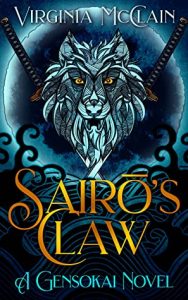 They tend to be richly character driven.
They tend to be richly character driven.
They feature what Gail Carriger calls the Heroine’s journey, where victory lies in building relationships or finding common ground, rather than in retrieving macguffins or winning battles. – Suzannah Rowntree
They represent female characters well.
This sadly isn’t a given in male-penned books, and while I enjoy reading (and writing!) male protagonists; I’m tired of reading about cardboard female characters. – Suzannah Rowntree
They help normalise what have traditionally been considered ‘women’s issues’.
Books by female authors are doing a lot these days to normalise consent, promote emotional awareness in characters of all genders, and to push non-male characters to the forefront of amazing adventures and incredible worlds. And they’re doing all of this while also telling some of the best fantasy stories on the market – stories that are so imaginative and well told that they leave you bereft after the last page. It’s indie authors of all genders making the push, but I think women, and especially BIPOC women, authors are at the front of it all, and it’s absolutely taking fantasy to the next level. – Virginia McClain
It mostly takes a female author to make me believe in a romance.
I know this is an unpopular opinion, but I love seeing a relationship develop slowly and believably over time (The Sword of Kaigen and Fortune’s Fool, I’m looking at you). I’d much prefer no romance to a romance I can’t believe in. – Suzannah Rowntree
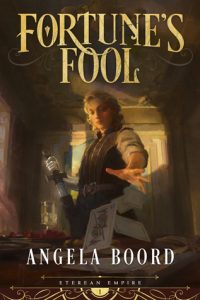 Women are writing some incredible romantic fantasy right now.
Women are writing some incredible romantic fantasy right now.
I’m with Suzannah! Romantic fantasy written by women is deep and complex, human and believable. They’re filled with relationships that make you ache, make you feel seen, make you feel like you’re part of the story instead of some prop to be used by other characters. We get to be human. We get to breathe. – Krystle Matar
They challenge the cardboard tropes used so often to characterize female characters.
I like that female authors are bringing romance, familial love and relationships, and emotional depth to subgenres like grimdark (Legacy of the Brightwash by Krystle Matar); that mothers are showing up as main characters (Sairo’s Claw by Virginia McClain and Queens of the Wyrd by Timandra Whitecastle); that middle-aged female characters are entering narratives as human beings instead of being dismissed as “crones” (Quenby Olson’s excellent short story, “A Slumbering Fire”.) I hope that people will also start rediscovering female fantasy writers who have somehow been forgotten—Barbara Hambly, Katherine Kerr, CJ Cherryh, Katherine Kurtz, Jennifer Roberson, Joan Vinge, and CS Friedman are some of the writers who inspired me and gave me a love of fantasy in the first place. – Angela Boord
Whether you’re interested in seeing what a well-written fantasy romance looks like, you want to read nuanced female characters, or are just looking for a fantastic fantasy to immerse yourself in, then pick up one by a female author. Don’t look at a female-coded pen name and use it as a reason to put the book back down, see it instead as a badge of honour. It’s a sign that this book is written by someone who’s had to work especially hard to get it before your eyes. Within its pages lay a manifesto of the fantasy revolution taking place, and all you need do is read on to be a part of it.
This article was written by Rachel Emma Shaw, with the exceptional insights from fellow indie-fantasy authors: Angela Boord, Krystle Matar, M. L. Wang, Suzannah Rowntree and Virginia McClain.
To read more about some of the points made here, check out:
The Venus Flytrap of Fiction: How women authors are being relegated to YA
Why do so few men read books by women?
A neuroscientist by training, Rachel Emma Shaw was a finalist in SPFBO6. She delights in creating stories that blend psychology and fantasy to explore the nature of life. Alongside her writing, she works as a science communicator for a charity and has more plants than is normal. Check out her website and find her on Instagram @rachel_emma_shaw.
Angela Boord lives in north-western Mississippi with her husband and the seven of their nine kids who are still at home. She writes most of her books at the kitchen table, surrounded by Nerf darts and Matchbox cars. FORTUNE’S FOOL is her debut novel and placed second in Mark Lawrence’s 2019 SPFBO5. She is currently hard at work on more books in the Eterean Empire series, as well as a Cold War portal fantasy series set in the 1980’s.
Krystle Matar has been writing for a long time, but things got serious when Tashué Blackwood walked into her life, an amber-eyed whirlwind. When she isn’t arguing with him or any of his friends, she parents and farms. She has a lot of children and even more animals and one very excellent husband. She is currently working on lots of stories set in the Dominion. She expects to exist in this universe for a while.
M. L. Wang is a fantasy author, martial artist, and weird recluse currently hiding somewhere in Wisconsin with her maroon-bellied parakeet, Sulu. She enjoys gruesome nature documentaries and long walks in circles around her room. Find out more about her on her website.
Historical fantasy author and SPFBO 6 finalist Suzannah Rowntree lives in a big house in rural Australia, drinking fancy tea and writing historical-fantasy fiction that blends real-world history with legend, adventure, and a dash of romance. Visit her website or keep up with her passing thoughts and hot takes on Twitter @suzannahtweets.
Virginia McClain writes epic and urban fantasy novels featuring badass women. Not just sword-wielding, magic-flinging, ass kickers (although, yes, them too) but also healers, political leaders, caregivers, and more. She writes epic fantasy inspired by feudal Japan, and humorous urban fantasy inspired by the unanswered mysteries of science.
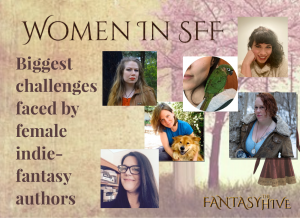

[…] Another one of my favourite blogs, The Fantasy Hive is a huge site packed full of reviews, interviews, and features covering indie books too. They also review indie games! They’re also judges for the Self-Published Fantasy Blog-Off contest. Definitely take a look at their featured articles, such as this fantastic piece on challenges faced by female indie fantasy authors. […]
[…] of authors I admire, exploring the difficulties faced by women during their writing careers (read the post here). The same themes resonated throughout their accounts. Themes of self-doubt, of insecurity about […]
[…] Biggest Challenges Faced by Female Indie-Fantasy Authors: Guest Post https://fantasy-hive.co.uk/2021/07/biggest-challenges-faced-by-female-indie-fantasy-authors-guest-po… […]
[…] Another one of my favourite blogs, The Fantasy Hive is a huge site packed full of reviews, interviews, and features covering indie books too. They also review indie games! They’re also judges for the Self-Published Fantasy Blog-Off contest. Definitely take a look at their featured articles, such as this fantastic piece on challenges faced by female indie fantasy authors. […]
[…] In The Fantasy Hive’s latest post, five authors share the biggest challenges faced by female indie-fantasy authors. The authors in the guest post are Suzannah Rowntree, Angela Boord, Virginia McClain, ML Wang, […]
Great post!
Something that’s really great about being an indie author is that I can write whatever stories I want and whatever stories I want to read. Well, that I can publish them. I could always write them if I have a computer or paper and pen. I can write female characters however I imagine them, not however someone else does. And that’s great! Awesome article 🙂
I cannot understand why anyone wouldn’t want to read female authors. I almost never bother to know the gender of the author I’m reading, but it does turn out that most of my favourites are female.
[…] Biggest Challenges Faced by Female Indie-Fantasy Authors: GUEST POST […]
Great post! Nice to hear from all these awesome authors 🙂